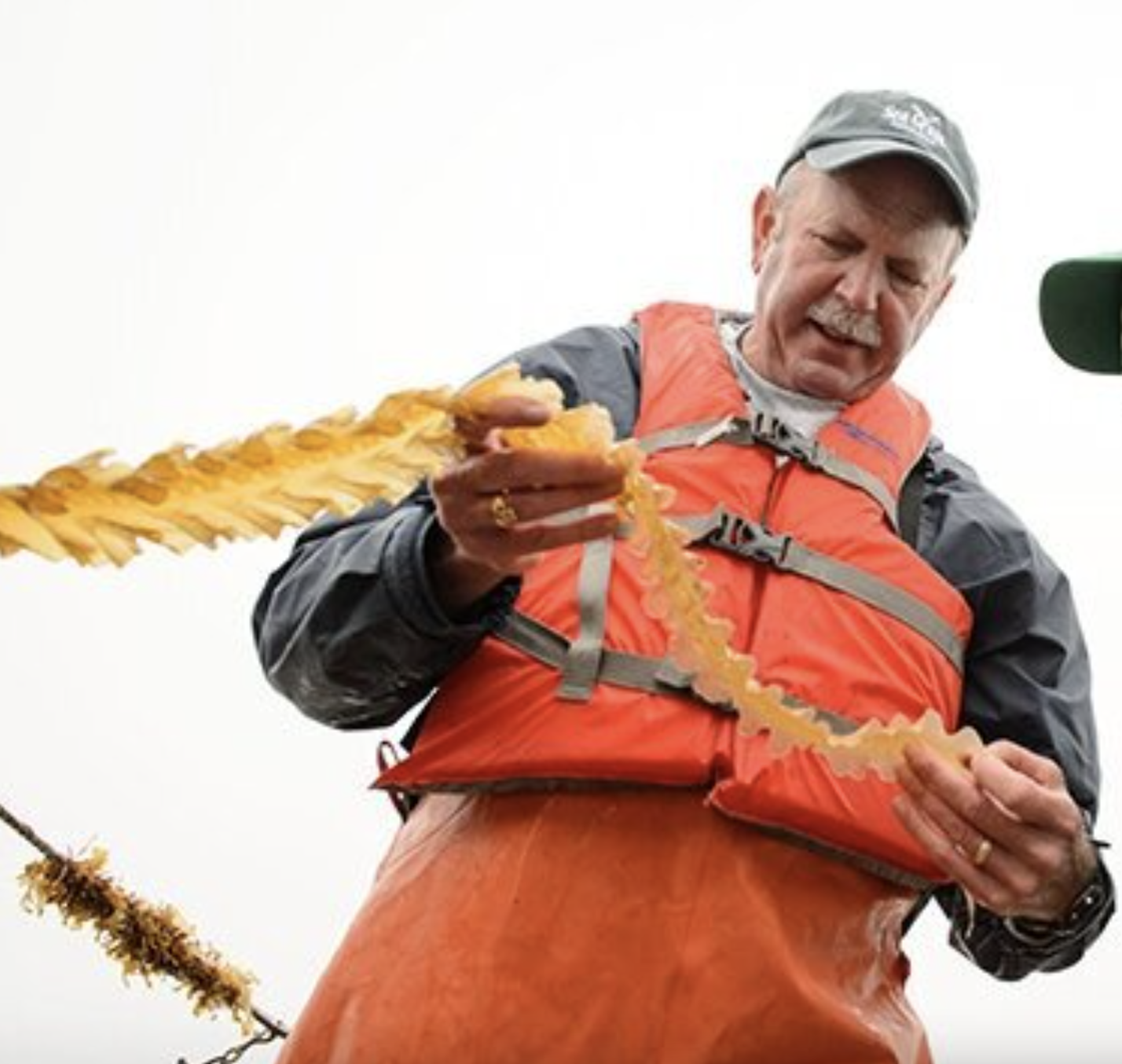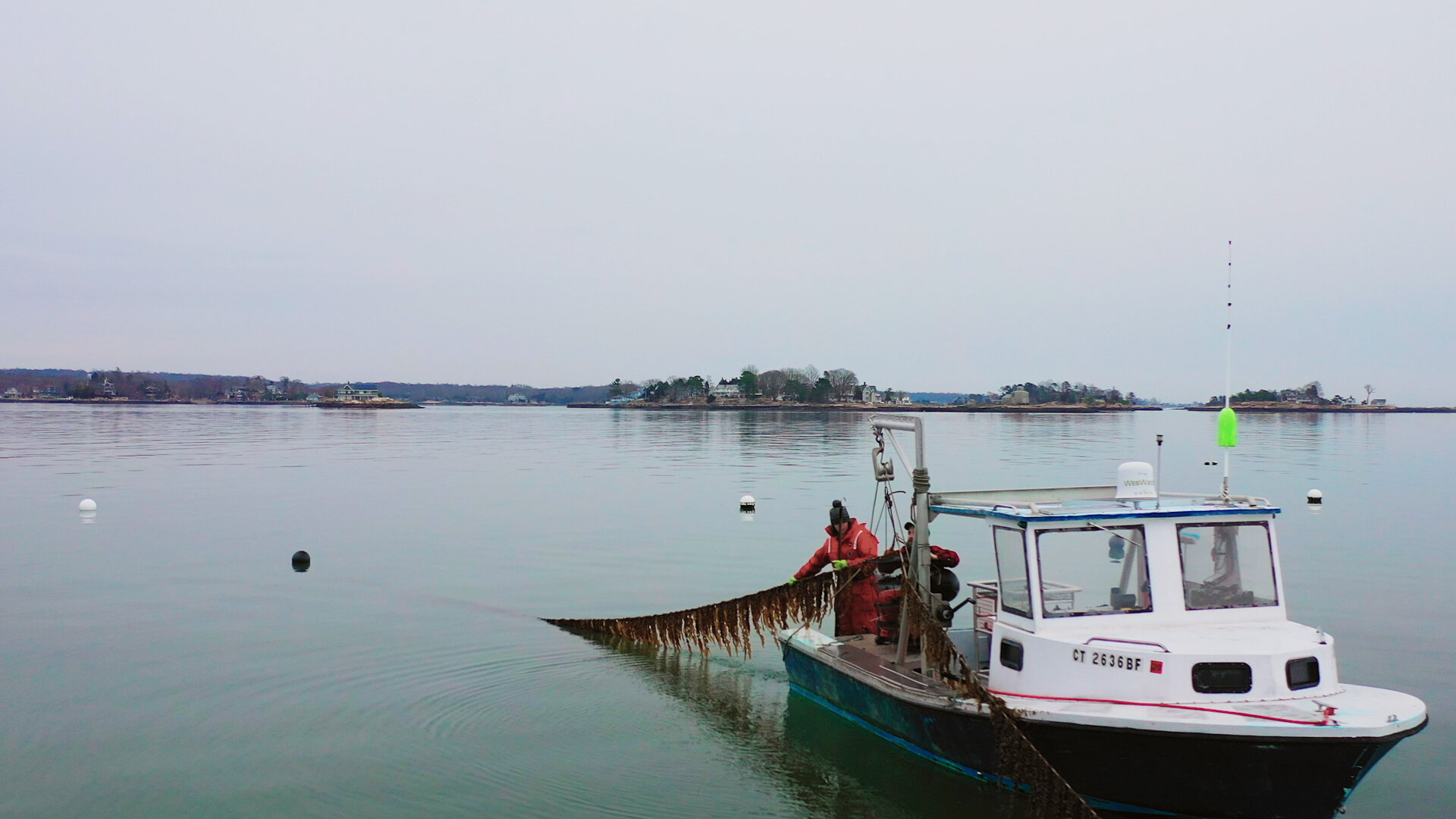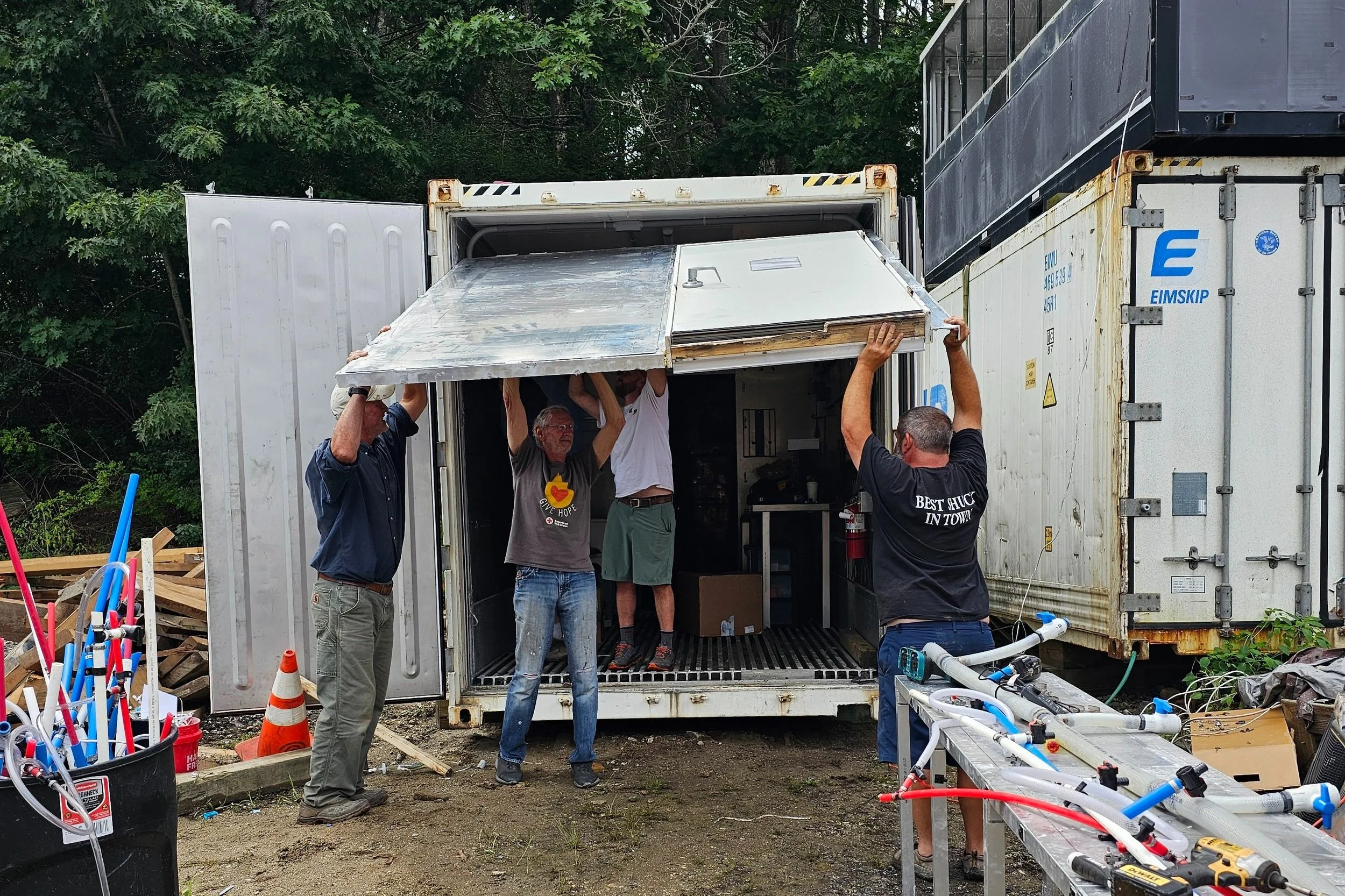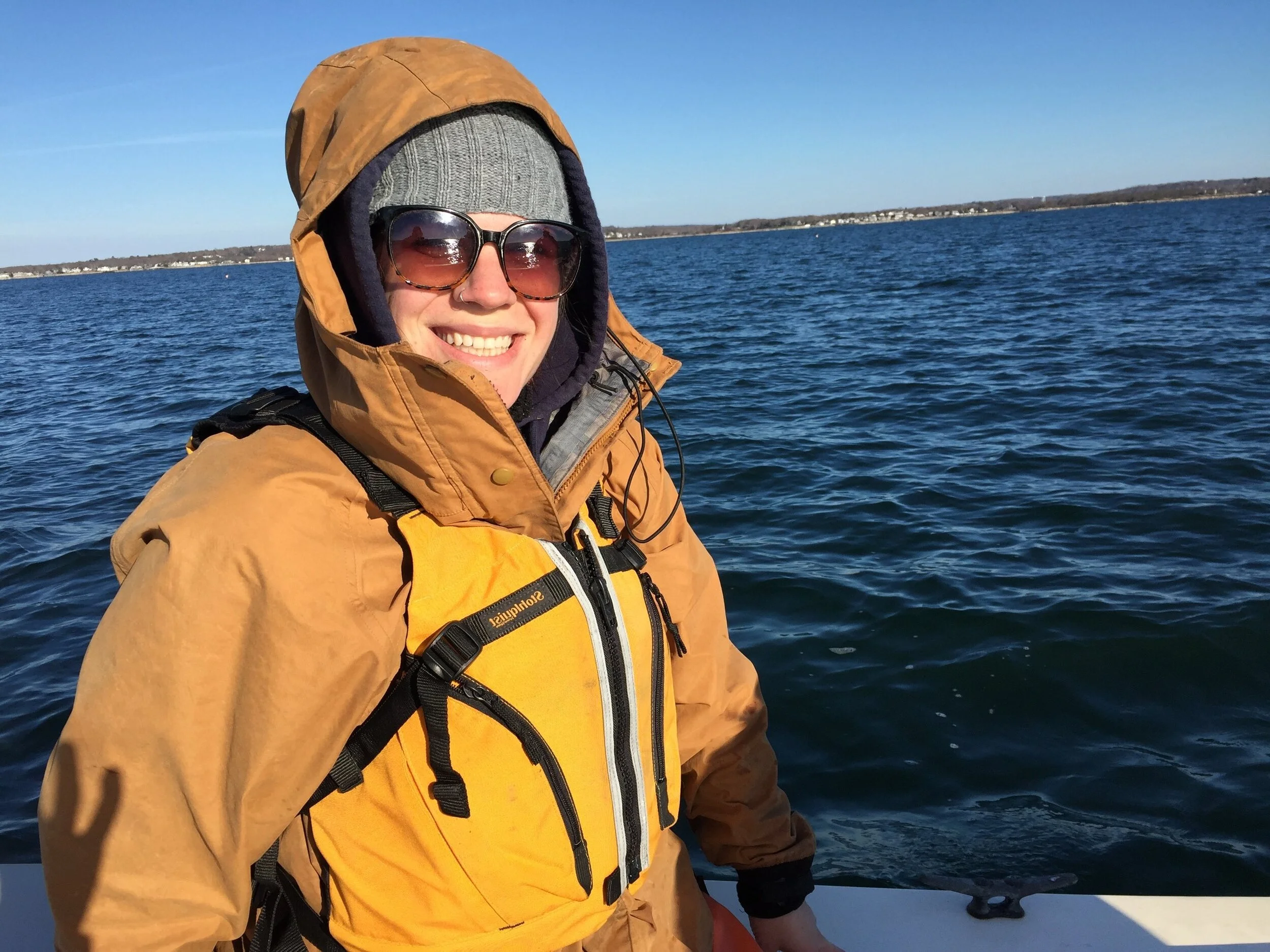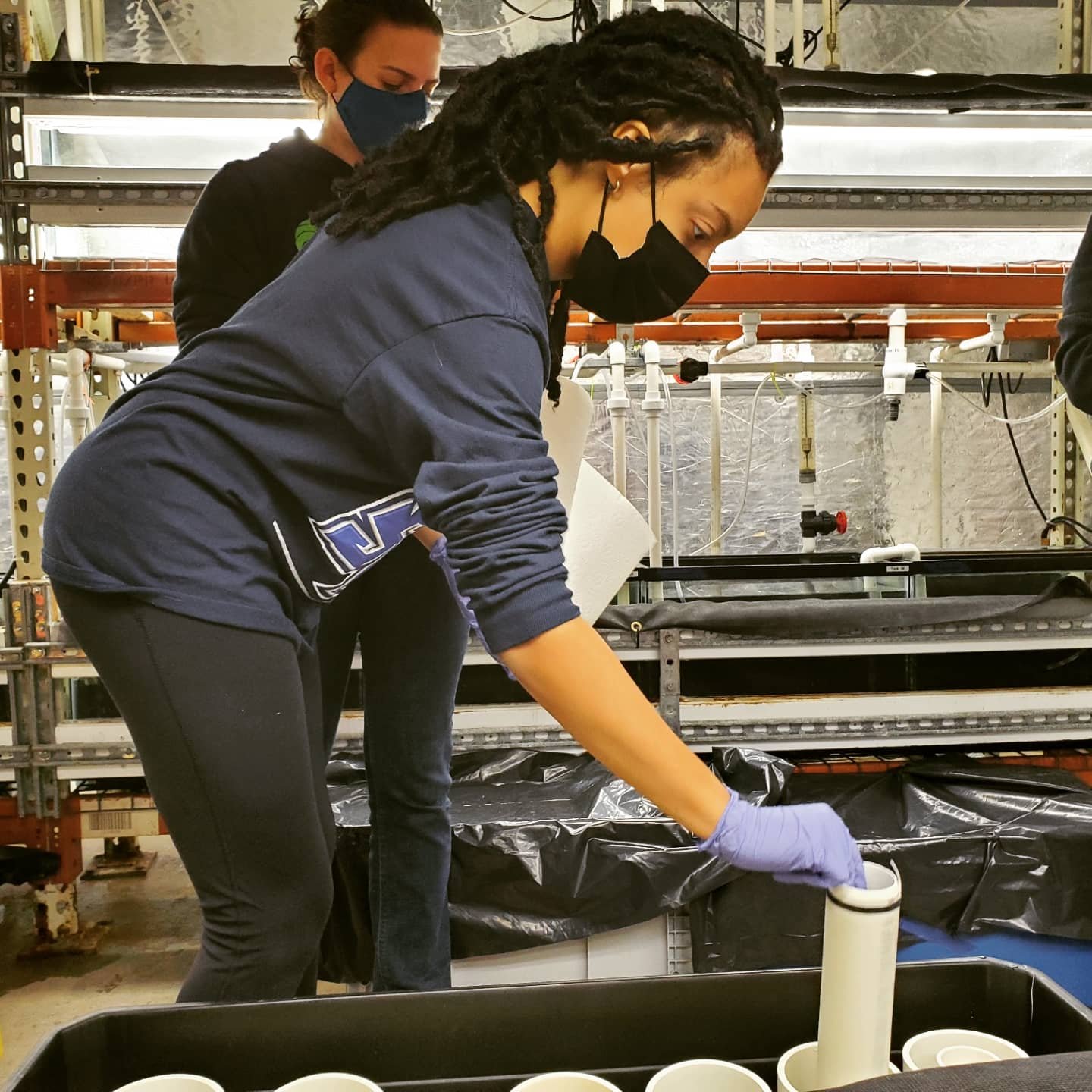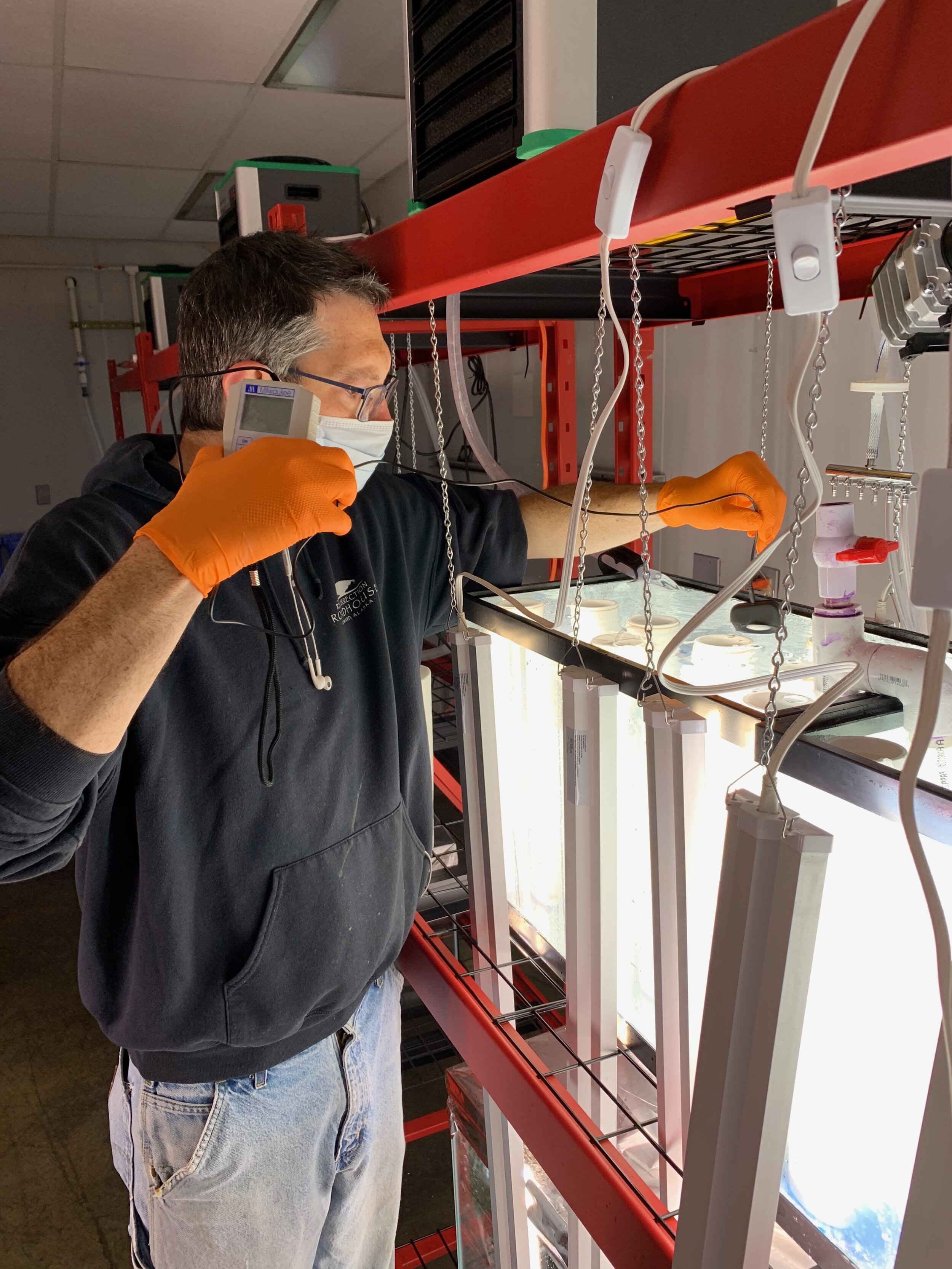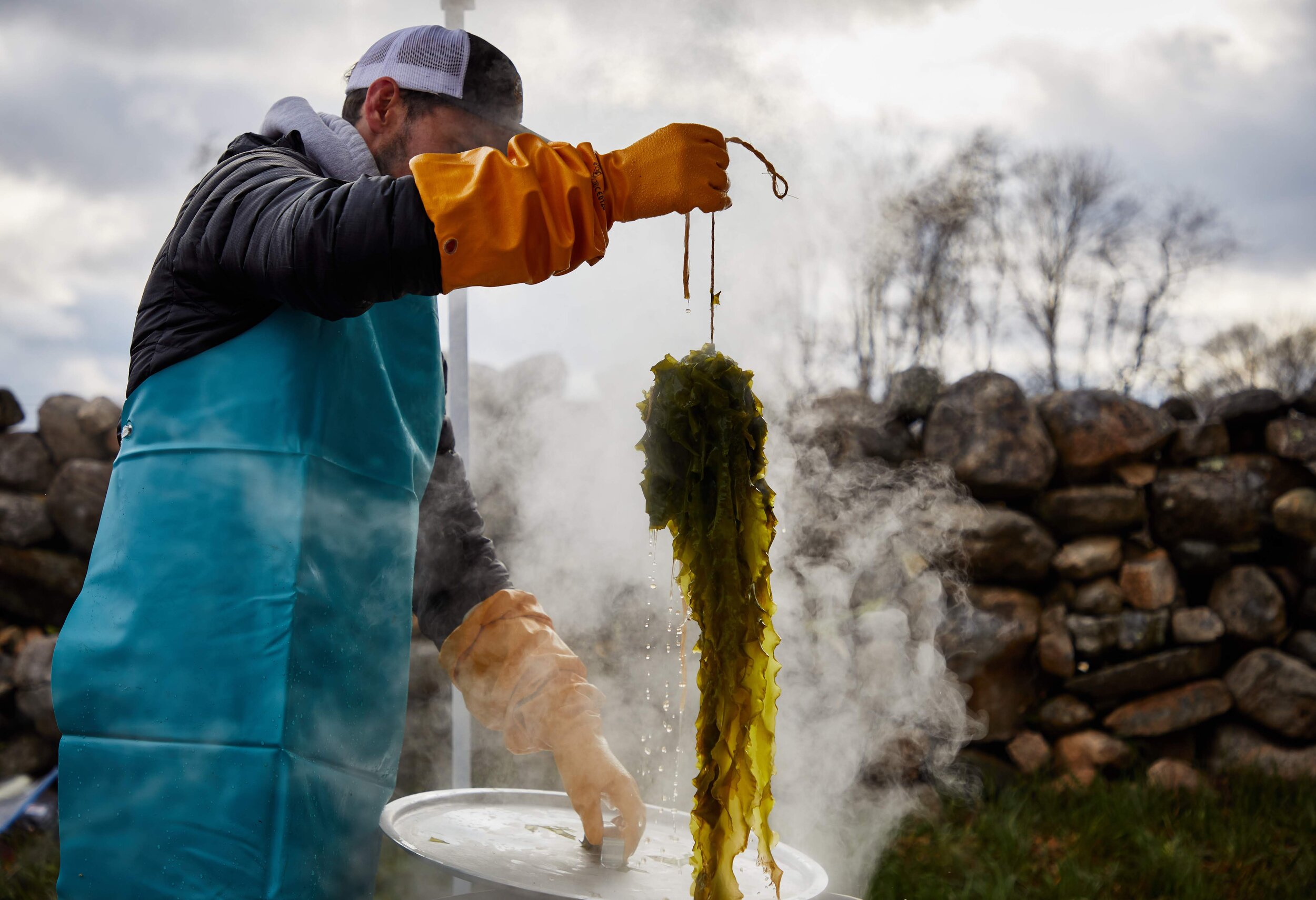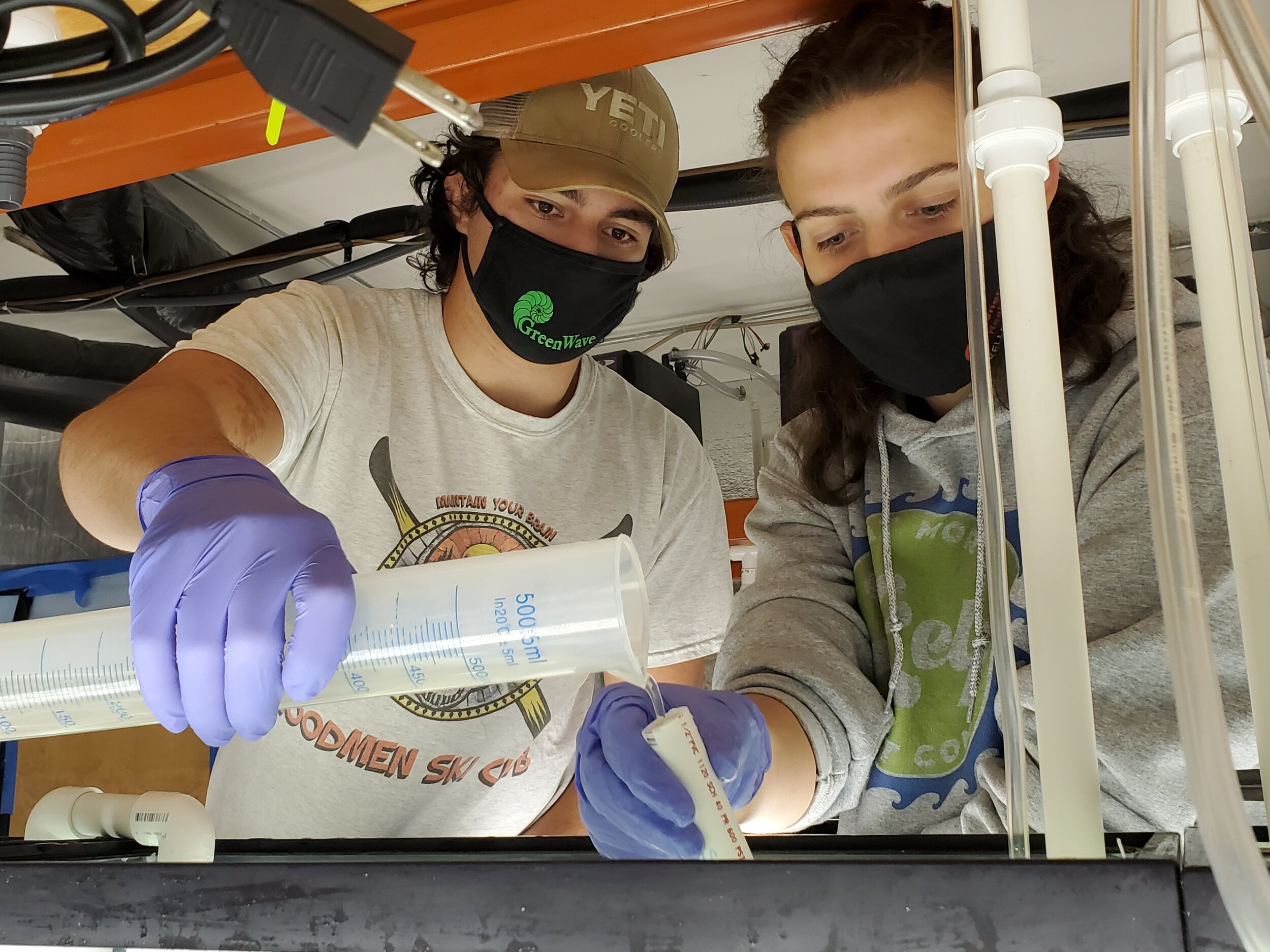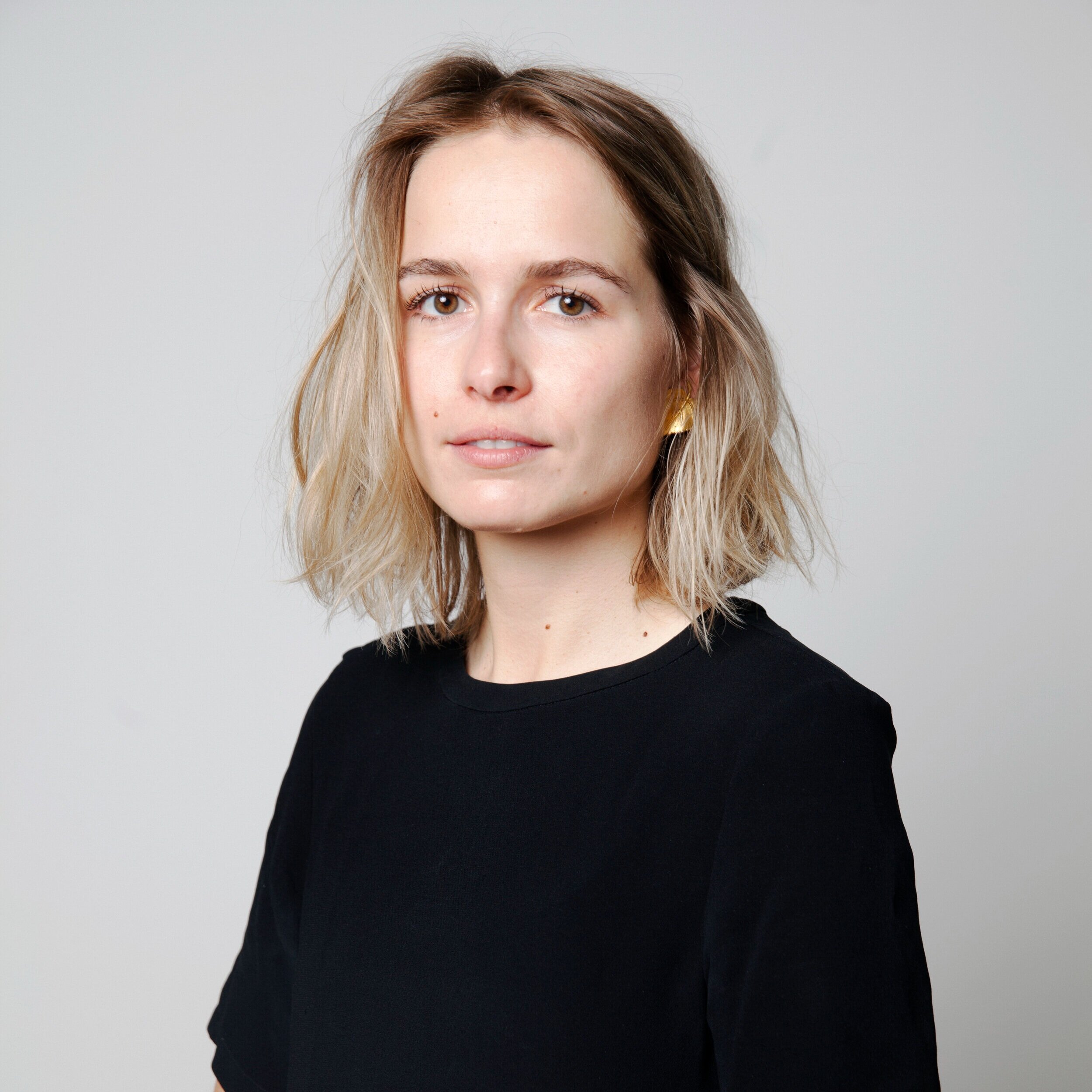
Who Farms Matters
Meet the people building the new regenerative ocean economy.
At GreenWave, we believe who farms matters.
Because the regenerative ocean farming industry is in its infancy, we have the chance to do this right—to ensure coastal communities benefit from the new ocean economy.
We partner with fishermen, shellfish farmers, seed producers, processors, and entrepreneurs to drive industry growth–we need all hands on deck if we’re going to make a living on a living planet.
Farmers
Seed is one of the highest costs farmers shoulder, both in its price and its impact on yield. When seed quality varies, productivity throughout the entire season can suffer. GreenWave is taking the guesswork out of seed production, developing tools like a nursery-in-a-box—a modular, shippable system built to deliver reliable, high-quality seed at lower cost.
In response to challenges in Alaska, GreenWave organized a three-day seed quality workshop, convening seven of the state’s active nurseries to align on shared practices, troubleshoot challenges, and adapt the SOPs for the region’s unique conditions. Hosted at the Prince William Sound Science Center with support from Alaska Sea Farms and funding from the Southeast Conference (SEC) and Alaska Sea Grant, the event marked the first time the majority of Alaska’s operators gathered to tackle shared obstacles and plan for the future of seed.
Kelp is a regenerative powerhouse, but turning that potential into real product innovation remains a challenge for brands across food, beauty, and personal care. In partnership with Unilever Foundry and ingredient supplier Macro Oceans, GreenWave’s Kelp CoLab will bring together brands to accelerate the use of and demand for kelp-based ingredients.
Affordable, regional kelp processing is essential to scaling regenerative ocean farming. With a short harvest window and even shorter shelf life, fresh kelp must be processed quickly to preserve its quality and value. Turning raw kelp into stabilized formats helps farmers reach new markets and generate income long after the harvest ends.
We’ll take you behind the scenes—from harvest to stabilization—to show how scalable processing infrastructure is unlocking year-round opportunity for ocean farmers.
For centuries, farmers have looked to the ocean to restore soil health. Now, GreenWave and Rodale Institute are reviving this age-old tradition through a three-year research partnership designed to integrate regenerative ocean farming and land-based agriculture.
For an inside look at our approach, join us for a tour of GreenWave’s seed bank and nursery, guided by our Director of Infrastructure, Toby Sheppard Bloch. Here, you’ll see firsthand how our farmer-forward seed infrastructure is supporting the future of ocean farming.
This season, GreenWave launched new programming to address persistent industry bottlenecks that challenge seasoned farmers in three regions poised for scale: the Kodiak and Cordova regions of Alaska and Casco Bay, Maine. The program aims to develop targeted interventions that empower seed producers, farmers, and processors to coordinate, collaborate, and pool resources—enabling them to scale their operations while laying the foundation for resilient local ocean farming industries.
In addition to warming waters, pollution, and disease, a surge of overharvesting of wild kelp is threatening local ecosystems and livelihoods due to increasing global demand for kelp. In response to this crisis, Argentina-based grassroots marine conservation organization Por el Mar is working to safeguard these forests and find ways for the region to get ahead of the climate curve. Por el Mar is championing regenerative ocean farming as a sustainable alternative to wild harvesting while providing artisanal fishermen in the area with new economic opportunities.
Last month, GreenWave’s Infrastructure, Market Development, and Training and Support teams joined forces to deliver two in-person workshops in Kodiak, Alaska. These opportunities are designed to bring the network together, facilitate peer-to-peer learning, and generate cross-regional collaboration around advanced technical topics. This year, we covered new harvesting, processing, and stabilization infrastructure and technologies—elements critical to scaling the regenerative ocean farming industry.
Affordable, local kelp processing is critical to scaling the regenerative ocean farming industry. With a short harvesting window and an even shorter shelf life, raw kelp needs to be quickly processed and stabilized before it begins to deteriorate. That short window, coupled with the fact that most farmers lack access to local commercial processing facilities, impacts their ability to bring their crops to market.
Scientists & Entrepreneurs
Climate change is fueling warming waters and unpredictable extreme weather that directly impacts the livelihoods of lobstermen, fishermen, and shellfish farmers up and down the East Coast. Today, family fishing businesses like Hart Hatchery in New York are turning to kelp to preserve their maritime livelihoods for generations to come.
